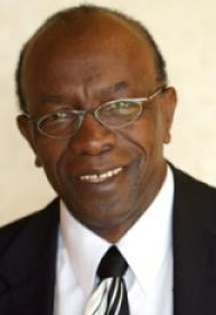(Reuters) – The decision to award the 2022 World Cup to Qatar was called into question by new FIFA executive committee member Theo Zwanziger on Sunday, with the German saying some of his fellow members had been pressurised by their governments to vote for the bid.
The comments from the 66-year-old president of the German Football Association (DFB) to the Frankfurter Allgemeine newspaper are significant as he was appointed last week by FIFA to head one of the new committees established to clean up the organisation.
Accusations of bribery and corruption over the last year have dogged world soccer’s governing body.

Zwanziger, who has been a constant vocal critic of last December’s decision to give the tiny Arab state the World Cup, pulled no punches.
“In my opinion the vote for Qatar was decided by some members of the executive committee who are in a very close relationship with their governments, who pushed the political case for Qatar,” he said.
“I think the choice of Qatar from a sporting perspective is still questionable because, due to the summer climate and the size of the country, a World Cup should not be held there.
“This was also evident in the report of the evaluation committee,” he added.
Zwanziger, who was not on the exco when the decision was taken, replaced Franz Beckenbauer on the committee after this year’s FIFA Congress but said the German Chancellor had never tried to exert any pressure on his predecessor, although he doubted that was the case in other countries.
He also referred to the infamous email, leaked by former executive committee member Jack Warner, that was sent to the Trinidadian by FIFA general secretary Jerome Valcke.
Valcke wrote that banned former executive committee member Mohamed Bin Hamman of Qatar “thought you can buy FIFA as they (Qatar) bought the World Cup”.
Zwanziger said: “I have not forgotten this sentence — this must be cleared up.
“I think the word ‘buy’ does not necessarily mean that bribes to certain individuals were paid, but rather a political influence was meant.”
After the email was made public by Warner, Valcke said he did not mean to suggest that bribes were offered, but rather Qatar used its “financial strength” to lobby for support.
Qatar has denied any wrongdoing and believes it won the right to host the World Cup fair and square.
NOT RIGHT
Zwanziger also said it was time FIFA stopped thinking it was right about everything it did all the time and that all of its critics were wrong.
“We at FIFA are the ‘good and the powerful’, the others who are against us, are ‘always the bad guys.’ This kind of thinking needs to change,” he said.
Zwanziger also said it was time the International Football Association Board (IFAB), the game’s law-making body which is made up of the four British associations and four representatives from FIFA, was scrapped.
The IFAB, which was formed in 1886 — 18 years before FIFA came into existence, is seen by many as an anachronism in the modern game, although its supporters say its arch-conservatism regarding law changes ensures the game remains pure.
But Zwanziger said: “I am convinced that things can not continue. The methods are rather like the Empire and is not a modern democracy. You propose a sensible amendment and often you do not even get a proper answer.”
He said the DFB had proposed a sin-bin experiment in amateur or lower league football but that it had been postponed “without explanation”.
He said: “I don’t think that’s very transparent and democratic.”
